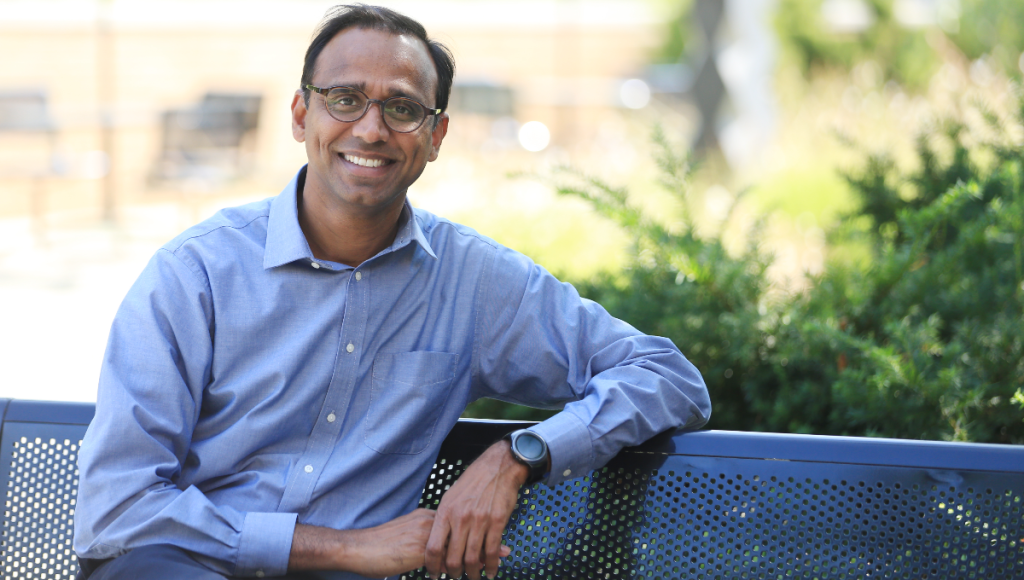
photo from MSU Today
After a “fantastic run” of eight years in the role of dean of the College of Communication Arts & Sciences, Prabu David says it felt like a good time to step aside and let rising leaders within the college take on new roles while he transitions to associate provost for Faculty and Academic Staff Development. He’s proud of the accomplishments of his talented colleagues in ComArtSci during his tenure, and he hopes to take a bit of what he’s learned as dean and share that with his expanding role in the campus community.
The Essential Piece of the Puzzle
David says his career in academia has been influenced by concepts in Dan Pink’s TED Talk, “The Puzzle of Motivation,” that draws from his book, “Drive: The Surprising Truth About What Motivates Us.” Pink’s primary argument states that organizations are making business decisions, especially related to talent and people, based on outdated concepts without a basis in science. Conventional rewards aren’t as effective as we are led to believe, and a newer approach scientists have been studying is built more around “intrinsic motivation.” This concept of intrinsic motivation has greatly shaped David’s leadership style and consists of autonomy (ability to direct ourselves), mastery (desire to get better at things that matter) and purpose (drive to do something that contributes beyond ourselves).
For David, this is the basis of a successful team and workplace, and every campus should be built on these elements. Our faculty and academic staff are continuing to make a difference both inside and outside the classroom and are continuous learners. Under the concept of intrinsic motivation, leaders should be working to ensure faculty and academic life continues to be personally and professionally rewarding with little room for disengagement and discontent.
Finding Alignment
Throughout his time at Ohio State University, Washington State University and here at MSU, David has had many opportunities to understand how a person’s intrinsic motivation cannot be contained to work alone. Much of life happens outside the confines of the workplace, and many faculty and academic staff’s lives are directly intertwined with the work they do. Developing habits for a healthy mind and cultivating a personal value system are helpful for more alignment between who people are within, and outside, the confines of their work role.
To achieve some of this alignment himself, David says he spends time reflecting when he can amidst the bustle of his life. He practices continuous learning and leans toward listening to podcasts that engage his mind. He takes walks and rides his bike while meandering through scenic parks and gardens, and often returns to the places he has discovered bring him joy. He also practices journaling, a habit he encourages others to establish, and spends time in his journals reflecting on what he’s read, heard or thought about. “Invest a little time reading something interesting or important, write about it, and then think about it,” David explains. He finds himself listening and reading content from his favorite authors and creators like Adam Grant, Brené Brown, Krista Tippet, Arthur Brooks and the New York Times Daily.
The question for David has always been what is, and is not, important to derive satisfaction, both personally and professionally. Encouraging teams and colleagues to develop their own sense of what it means to be intrinsically motivated is essential, and he aims to continue this focus as he moves into his new role as associate provost of Faculty and Academic Staff Development. With this at the forefront of his leadership efforts, he looks forward to seeing all that his colleagues will continue to accomplish.
Next read Prabu David’s goal for people in academia – “Joy at work and joy in life that are intertwined.”

